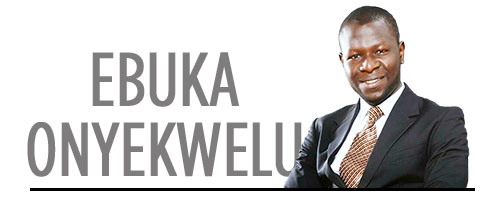“Social media is a reality of its own accord but remains a virtual world that may not have a significant real-world impact” —Ebuka Onyekwelu
A closer look at Nigeria devoid of the arrogation of advantages by supporters of the top three contenders might show that the election would be determined by six socio-economic realities in Nigeria. Aside from religion and ethnic identities which have always played a significant role in Nigeria’s election, there are more factors that will shape Saturday’s result.

The first is the divide between the north and south of Nigeria. By far, northern and Southern Nigeria are two irreconcilable and different zones. It would be correct to say that both live in their own world. For the most part, much of what troubles Southern Nigeria is not a problem in the North. Conversely, much of what troubles Northern Nigeria is not a problem in the South. This was essentially why it happened that when nearly the entire South was protesting police brutality under the aegis of EndSARS, it was strange to the North. The protest met its major roadblock in Abuja, despite its cosmopolitan nature. Right now, parts of Southern Nigeria have been uneasy with the currency crisis, yet, not a single protest in the North. Clearly, Nigeria’s North and South live under different realities. What this means is that the majority of voters in the two divides will vote for completely different reasons. Largely, in the north, their political behavior will remain constant.
For the rich Nigerian, it’s just another election, nothing really so serious
The second is the reality of the rich and that of the poor. For the rich Nigerian, it’s just another election, nothing really so serious. For the super-rich, it’s a contest among his friends. They don’t see the rhetoric that others may see. They don’t see that party A has failed or that party B will do better. What they see is that one of their friends is going to become the next president. On the other hand, there are those who are not poor but not so rich. They are concerned that party A or B has failed. They believe that the voters must vote in a particular direction for the country to move forward. To them, the country must go in a certain direction or there will be no progress. But there are others too who are poor and needy. For them, the election will afford them the opportunity to sell their votes and make extra cash from the illegal venture. For those in this category, the major spot in the election is the excitement that their votes are being priced. It would appear that it is only during elections that ‘important people’ come to them to ask for something. However, by the initial dual distinction, we just have those on the easy flank, relaxed and at peace with whatever the election outcome might be, and those on the extreme side somehow agitated or triggered by the election and its eventual outcome. The implication is that while the election is a make or mare or money venture for some people, it is an easy exercise for others.
Finally, there is the reality in villages and the reality in urban centres. Many voters in urban centres might tend to behave in certain ways based on their exposure. They may therefore tend to think on their feet and tilt towards more informed political behavior because of their environment. Those in the village on the other hand might not act as privileged or exposed. Therefore, they may tend to act in a certain way as dictated by their own environment. So, while voters in urban centres might vote based on their affiliation with a candidate or based on other considerations, most villagers will vote on the basis of a different reality.
Generally, the outcome of Saturday’s presidential election will be based on realities upon which different categories of people voting in the election, live in. Although social media is a reality of its own accord, it remains a virtual world and may not have a significant impact on the reality on the ground because participants in virtual spaces contribute from everywhere in the world. Meanwhile, for this election, one has to be on the ground and in his polling unit to be able to vote. More so, the majority of the players in the election are not on social media.
By and large, the result of Nigeria’s 2023 Presidential Election will be a reflection of the different realities under which Nigerians live which remain majorly unchanged and therefore suggests that results might reflect traditional affiliations.

